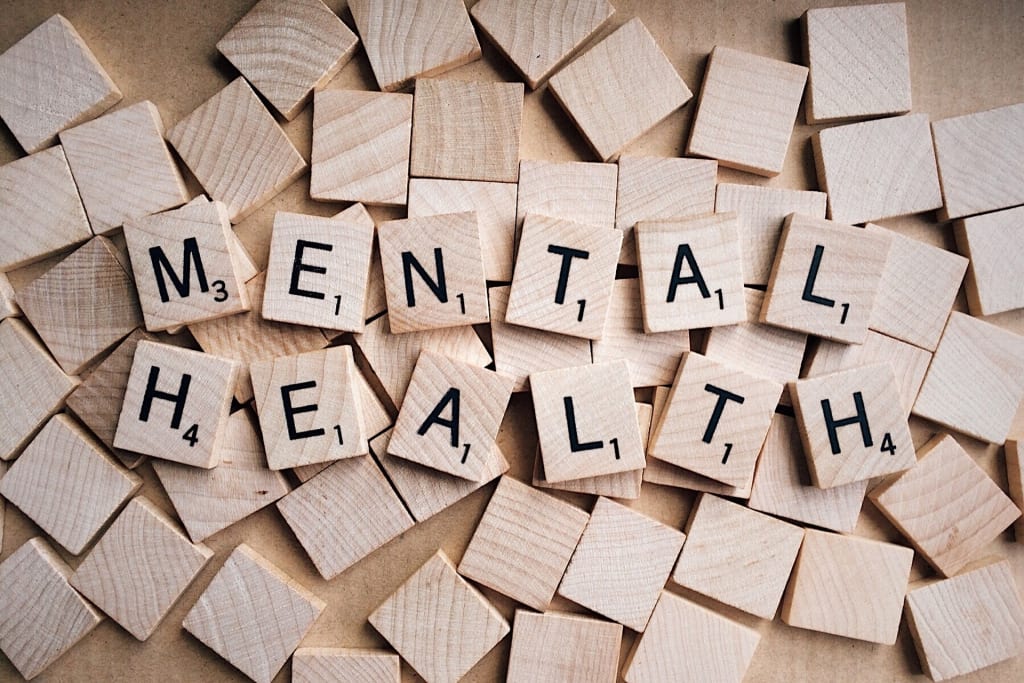Mental Health Matters: Strategies for Coping in a Fast-Paced World
Finding Balance and Serenity Amidst the Chaos

In today's fast-paced world, maintaining mental health has become a crucial aspect of overall well-being. With the constant demands of work, social life, and personal responsibilities, it's easy to feel overwhelmed and stressed. This article explores effective strategies for coping with the pressures of modern life, ensuring that mental health remains a priority.
Understanding the Modern Mental Health Landscape
The pace of life has increased significantly in recent years, driven by advancements in technology and changes in societal expectations. While these developments have brought numerous benefits, they have also introduced new stressors. The pressure to be constantly connected, productive, and successful can take a toll on mental health.
According to the World Health Organization (WHO), mental health conditions are on the rise, with anxiety and depression being the most common. The impact of these conditions is profound, affecting not only the individual but also their relationships, work performance, and overall quality of life. Recognizing the importance of mental health is the first step toward managing it effectively.
Recognizing the Signs of Mental Health Struggles
Before delving into coping strategies, it's important to recognize the signs that your mental health may be suffering. Common symptoms of stress, anxiety, and depression include:
- Persistent feelings of sadness or hopelessness
- Excessive worrying or fear
- Difficulty concentrating or making decisions
- Irritability or anger
- Changes in sleep patterns, such as insomnia or oversleeping
- Physical symptoms like headaches, stomachaches, or fatigue
- Social withdrawal and loss of interest in activities once enjoyed
If you or someone you know is experiencing these symptoms, it's essential to take action and seek help if necessary.
Strategies for Coping with Stress and Anxiety
1. Mindfulness and Meditation
Mindfulness involves being fully present in the moment and aware of your thoughts and feelings without judgment. Meditation is a practice that helps develop mindfulness. Research has shown that mindfulness and meditation can significantly reduce symptoms of anxiety and depression.
Start with short daily sessions, focusing on your breath and observing your thoughts. Apps like Headspace and Calm offer guided meditations that can help you get started.
2. Regular Physical Activity
Exercise is a powerful tool for managing stress and improving mental health. Physical activity releases endorphins, which are natural mood lifters. Aim for at least 30 minutes of moderate exercise most days of the week. Activities like walking, jogging, yoga, and dancing can be particularly effective.
3. Healthy Eating Habits
Nutrition plays a vital role in mental health. A balanced diet rich in fruits, vegetables, whole grains, lean proteins, and healthy fats can positively impact your mood and energy levels. Avoid excessive caffeine and sugar, as they can contribute to anxiety and mood swings.
4. Adequate Sleep
Quality sleep is crucial for mental health. Aim for 7-9 hours of sleep each night. Establish a regular sleep routine, create a comfortable sleep environment, and avoid screens before bedtime to improve sleep quality.
5. Time Management and Organization
Effective time management can reduce stress by helping you prioritize tasks and manage your responsibilities. Use tools like planners, to-do lists, and digital calendars to stay organized. Break tasks into smaller, manageable steps to avoid feeling overwhelmed.
6. Social Support
Strong social connections are essential for mental health. Make time for friends and family, and don't hesitate to reach out for support when needed. Joining clubs, groups, or online communities with similar interests can also provide a sense of belonging and reduce feelings of isolation.
7. Therapeutic Techniques
Cognitive-behavioral therapy (CBT) is a widely used therapeutic approach that helps individuals identify and change negative thought patterns and behaviors. Many self-help resources and apps incorporate CBT techniques, offering practical tools for managing stress and anxiety.
8. Limit Screen Time
Excessive screen time, especially on social media, can contribute to stress and anxiety. Set boundaries for screen use, and consider taking regular breaks from digital devices. Engage in offline activities that you enjoy, such as reading, hobbies, or spending time outdoors.
Building Resilience
Resilience is the ability to adapt and bounce back from adversity. Developing resilience can help you cope with stress more effectively. Here are some ways to build resilience:
1. Positive Thinking
Cultivate a positive outlook by focusing on your strengths and achievements. Practice gratitude by regularly reflecting on things you are thankful for. Positive thinking can improve your overall well-being and help you navigate challenges more effectively.
2. Problem-Solving Skills
Enhance your problem-solving skills by breaking down challenges into smaller, manageable parts. Identify potential solutions and weigh the pros and cons of each. Taking proactive steps to address problems can reduce feelings of helplessness.
3. Flexibility and Adaptability
Embrace change and view it as an opportunity for growth. Being open to new experiences and willing to adapt to changing circumstances can enhance your resilience. Practice flexibility by setting realistic goals and adjusting them as needed.
4. Self-Care
Self-care involves taking deliberate actions to nurture your physical, emotional, and mental well-being. Regularly engage in activities that bring you joy and relaxation. This might include hobbies, spending time in nature, practicing yoga, or enjoying a warm bath.
5. Seeking Professional Help
If you're struggling to manage stress and anxiety on your own, consider seeking professional help. Therapists, counselors, and mental health professionals can provide valuable support and guidance. Don't hesitate to reach out if you need assistance.
The Role of Workplace Mental Health
The workplace is a significant source of stress for many people. Employers play a crucial role in supporting the mental health of their employees. Here are some ways workplaces can promote mental well-being:
1. Creating a Supportive Environment
Encourage open communication about mental health and reduce the stigma associated with seeking help. Provide resources and support for employees, such as Employee Assistance Programs (EAPs) and mental health days.
2. Flexible Work Arrangements
Offer flexible work arrangements, such as remote work options, flexible hours, and compressed workweeks. Flexibility can help employees balance work and personal responsibilities, reducing stress.
3. Promoting Work-Life Balance
Encourage employees to take regular breaks, use their vacation time, and disconnect from work outside of office hours. Promoting work-life balance can prevent burnout and improve overall well-being.
4. Providing Mental Health Training
Offer training sessions on mental health awareness, stress management, and resilience-building. Educating employees and managers about mental health can create a more supportive and understanding workplace culture.
Conclusion
In a fast-paced world, prioritizing mental health is essential for overall well-being. By implementing effective coping strategies, building resilience, and seeking support when needed, individuals can navigate the pressures of modern life more successfully. Remember that mental health is just as important as physical health, and taking steps to care for your mind is an investment in your future happiness and success.
About the Creator
Universal Voice
Hi, I'm Raja. I'm a story & article writer. Exploring ideas, insights & perspectives on a wide range of topics. Join me on this journey of discovery and conversation, as we dive into the topics that shape our world & our lives, SUBSCRIBE.
Enjoyed the story? Support the Creator.
Subscribe for free to receive all their stories in your feed.






Comments (1)
Great article! It effectively highlights the importance of mental health and provides practical strategies for managing stress and anxiety in today's fast-paced world. Thanks for sharing these valuable insights.